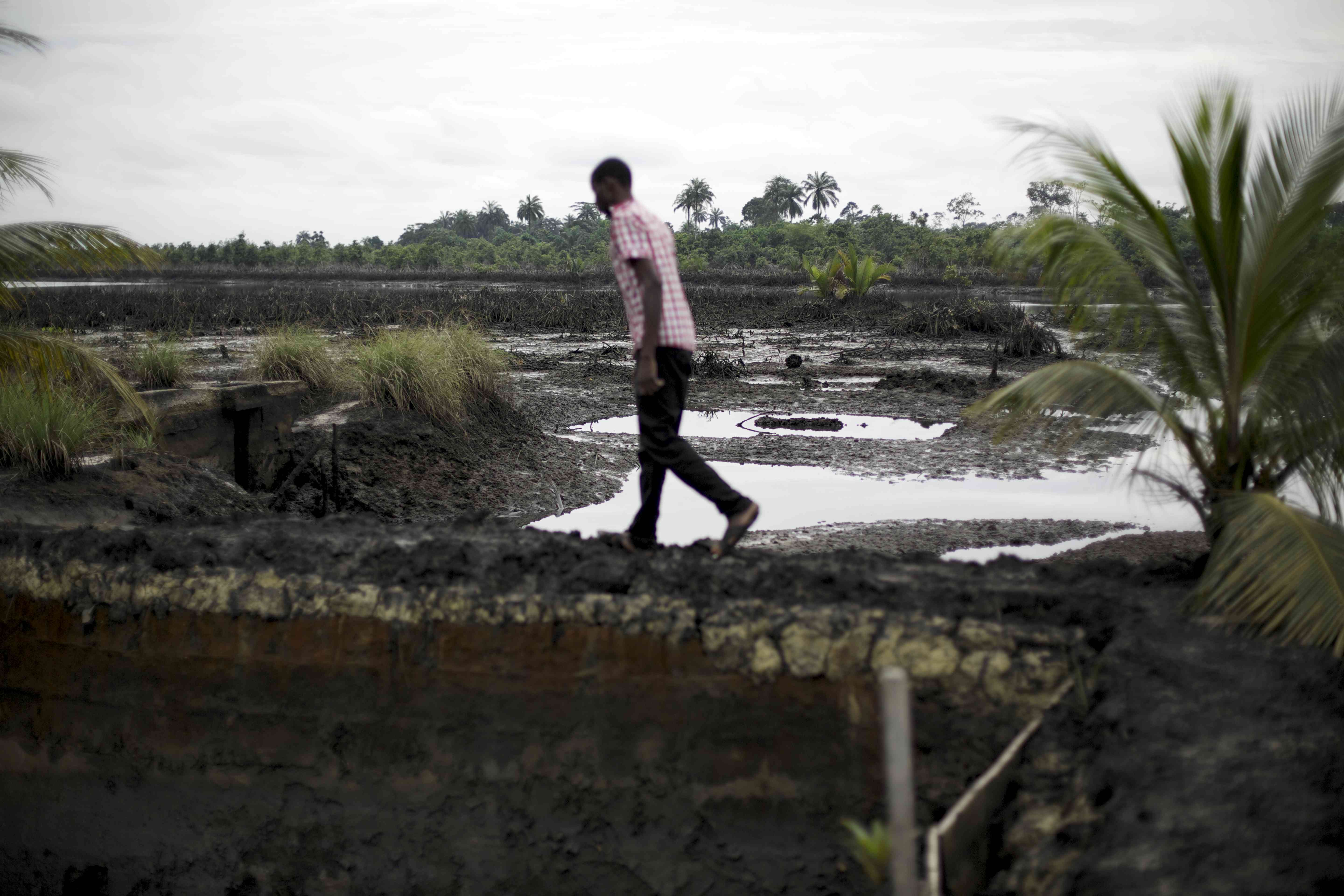The farmers demanded that Shell compensate for land pollution caused by oil spills in the Niger Delta. The Nigerians claimed to be victims of oil spills, which contaminated agricultural land and places for fishing. In addition, the plaintiffs point out, they haven’t had no access to clean drinking water because of the oil spill since 1989.
In turn, Shell told the CNBC that they are getting acquainted with the charges now. The company expressed view that the case should be heard in a court of Nigeria, and reiterated that the numerous oil spills are linked to illegal incisions in the pipelines. According to the company, the local population steal raw materials and process them illegally.
In early 2015, Shell has agreed to pay compensation for oil spills occurred in 2008-2009. The amount of compensation should be around $ 80 million, while the company initially offered to pay residents of the Niger Delta a little more than $ 6000.
According to IEA experts, the price of oil will drop even more in 2016. The agency is certain: "If nothing changes, the oil market will sink in an excess of offer. So the answer to this question - a confident "yes." The price may go down." The situation isn’t brightened by the fact that the countries outside OPEC are projected to reduce production at 600 million barrels per day. Once Iran returns to the comradery, the offer will exceed demand until the end of this year in the best case. The gap will be between more than 1 million barrels a day.
There was another time, recalls Vox. In 2010-2014, the world produced less oil than it consumed - countries struggled with effects of the global financial crisis, many of old oil fields were not gaining performance, and the conflicts in Libya and Iraq limited offer. Governments tried to stock oil up, just in case, and the prices were over $ 100.
Such cost of oil has allowed US companies to use new technologies, in particular, the method of hydraulic fracturing, developing fields in North Dakota and Texas. The proposal began to grow, oil production in the United States nearly doubled in 2010. Finally, the proposal has caught up with demand and then surpassed it.
In mid-2014, the world's oil production growth superimposed on the slowing global consumption – both China and Europe began to buy less. The world then turned to OPEC, which has traditionally been considered a balancer, able to quickly increase or decrease production when needed. However, this time, Saudi Arabia said "No": the kingdom decided that to maintain its market share is the priority now. Analysts agree that Riyadh hoped that the low level of oil prices would squeeze US manufacturers out from the market, as boundary payback per barrel is higher than in conventional production.
And then, it all went wrong. Cost of oil futures rushed down. However, mining companies from the United States were more flexible than Saudi Arabia hoped; at that, Iraq increased production, too. In the meantime, major oil consumers - China, Brazil, Russia – did not increase demand, preferring to concentrate on problems of their economies. Now, the market gets another producer, Iran, but the number of consumers is still not going to increase.
In turn, Shell told the CNBC that they are getting acquainted with the charges now. The company expressed view that the case should be heard in a court of Nigeria, and reiterated that the numerous oil spills are linked to illegal incisions in the pipelines. According to the company, the local population steal raw materials and process them illegally.
In early 2015, Shell has agreed to pay compensation for oil spills occurred in 2008-2009. The amount of compensation should be around $ 80 million, while the company initially offered to pay residents of the Niger Delta a little more than $ 6000.
According to IEA experts, the price of oil will drop even more in 2016. The agency is certain: "If nothing changes, the oil market will sink in an excess of offer. So the answer to this question - a confident "yes." The price may go down." The situation isn’t brightened by the fact that the countries outside OPEC are projected to reduce production at 600 million barrels per day. Once Iran returns to the comradery, the offer will exceed demand until the end of this year in the best case. The gap will be between more than 1 million barrels a day.
There was another time, recalls Vox. In 2010-2014, the world produced less oil than it consumed - countries struggled with effects of the global financial crisis, many of old oil fields were not gaining performance, and the conflicts in Libya and Iraq limited offer. Governments tried to stock oil up, just in case, and the prices were over $ 100.
Such cost of oil has allowed US companies to use new technologies, in particular, the method of hydraulic fracturing, developing fields in North Dakota and Texas. The proposal began to grow, oil production in the United States nearly doubled in 2010. Finally, the proposal has caught up with demand and then surpassed it.
In mid-2014, the world's oil production growth superimposed on the slowing global consumption – both China and Europe began to buy less. The world then turned to OPEC, which has traditionally been considered a balancer, able to quickly increase or decrease production when needed. However, this time, Saudi Arabia said "No": the kingdom decided that to maintain its market share is the priority now. Analysts agree that Riyadh hoped that the low level of oil prices would squeeze US manufacturers out from the market, as boundary payback per barrel is higher than in conventional production.
And then, it all went wrong. Cost of oil futures rushed down. However, mining companies from the United States were more flexible than Saudi Arabia hoped; at that, Iraq increased production, too. In the meantime, major oil consumers - China, Brazil, Russia – did not increase demand, preferring to concentrate on problems of their economies. Now, the market gets another producer, Iran, but the number of consumers is still not going to increase.



















